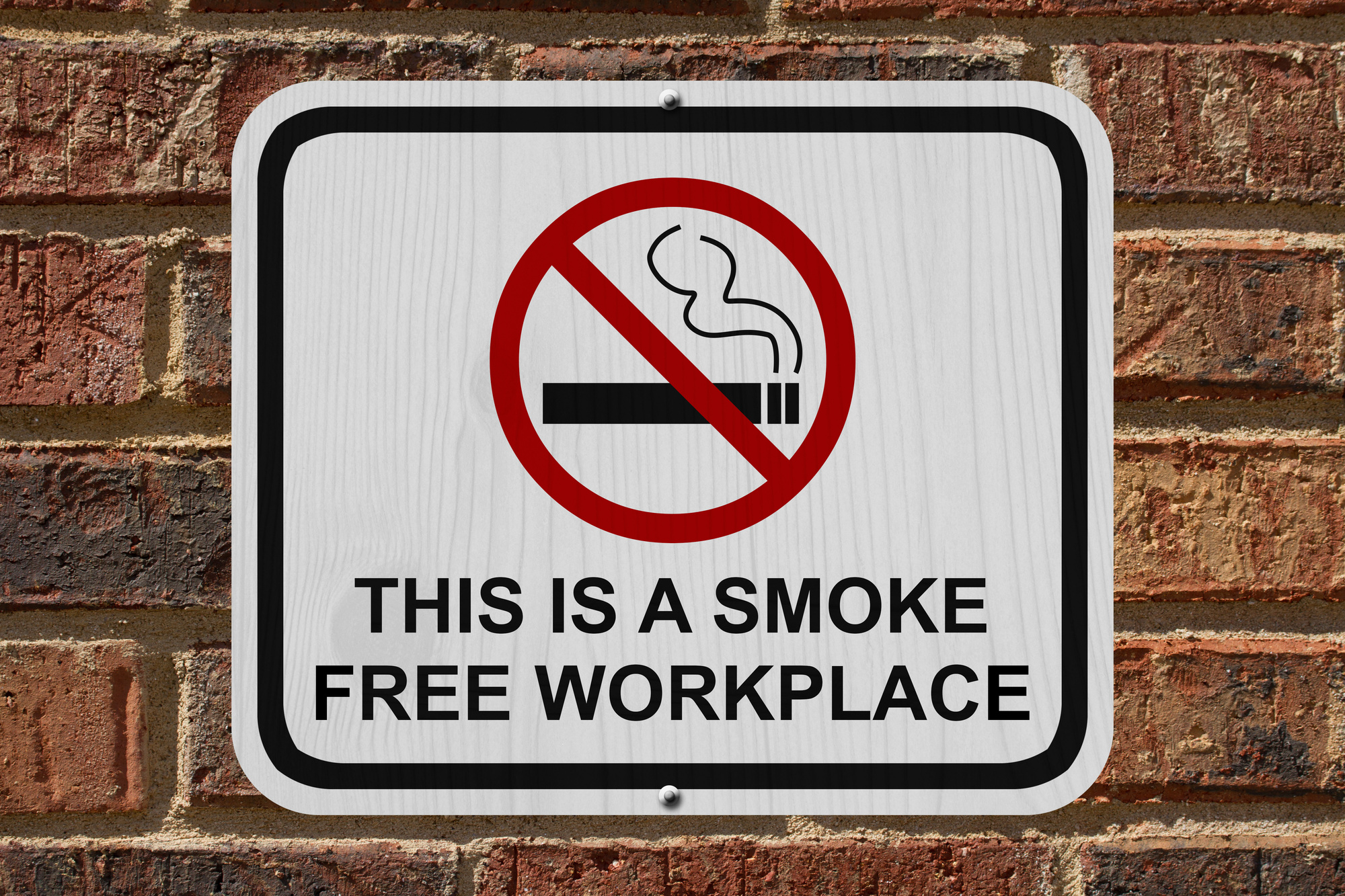Smoking in the Workplace: How Quitting Benefits Everybody
Drug screening tests for employment are beginning to include nicotine. Whether it’s from a nicotine patch, cigarettes, or tobacco, employers are refusing to hire people who smoke–even if they’re qualified.
Although these restrictions mostly take place in healthcare professions like those at insurance companies and hospitals, it’s caused controversy in many industries. As a result, 29 states, including the District of Columbia have enforced smoker protection laws.
Banning smoking in the workplace can benefit everyone from the CEO of the company to the lowest paid employee. Want to know how? Just keep on reading.
Should There Really Be Smoking in the Workplace?
Studies show that workers who are exposed to secondhand smoke during their shifts have an increase of tobacco-related carcinogens (substance causing cancer in living tissues) in their bodies throughout the progression of their work days. With that said, it’s no surprise that secondhand smoke is responsible for 41,000 deaths each year. This includes the progression of health problems like asthma in children.
When you smoke, over 4,000 chemicals are exhaled. So, even if you choose to smoke outside to protect your co-workers and others, smoking contributes directly to pollution in the air, water, and land.
Also, the cigarette butts that are left on the ground end up in lakes and rivers. Fish and other animals accidentally consume them, resulting in their deaths.
The chemicals in leftover cigarette butts also seep into soil causing problems in the growth of plants, including crops used for food. The rest of the butts that are left on the ground can take up to 26 years to fully decompose.
People work to provide for their families and loved ones. Illnesses affect us all at many points in our lives. But cancer and possible death from secondhand smoke are easily avoidable.
If we’re all considerate of one another, smoking in the workplace can easily be eliminated. Here’s our list of reasons this toxic habit should be nixed.
It Costs the Company Less
Smokers cost their employers more money. In fact, the amount is roughly $6,000 more per year.
These costs come mainly from loss of production. Smokers take more breaks throughout the day than their non-smoking counterparts.
This means they’re getting less work done in a single shift than employees who don’t smoke. And because more and more employers are banning on-site smoking near and around workspaces, smoke breaks can take longer to complete than they had before.
Additionally, employees who smoke take more days off, leading to an even greater decline in productivity.
Lower Health Insurance Rates
In the realm of smokers costing their employers more money, because of productivity, it also costs more to supply their healthcare.
Most companies offer health insurance benefits to their workers. Even if an outside health insurance provider is being used, the employer typically foots most of the bill or the entire thing.
Health insurance coverage is significantly more expensive for people who smoke. The rates continue to increase as the smoking employees age.
Also, the number of employers who offer free programs to quit smoking is continuously increasing. The costs of financing the quitting programs can add up fast whether nicotine patches, gum, or therapy is involved.
It Boosts Morale
If you’ve ever worked closely with someone who had terrible body odor or wore too much perfume, you understand how unpleasant the experience can be.
People who don’t smoke tend to be disgusted or at least annoyed by people who smoke. Why? Because the smell of cigarette smoke grosses us out.
When you add other people’s sensitivities to smell or health concerns like allergies, pregnancy, and sinus issues to the equation, a smoking habit can make your coworkers not want to be around you.
This is especially true in small, closed in office spaces. If there is a mix of smokers and non-smokers on a team, morale might not be as high as it could be.
More importantly, most people who smoke are oblivious to the odor and discomfort of those around them.
Better Brand Image
Workspaces, where employees aren’t outside smoking on their breaks, have cleaner public images. Especially if it’s a location that children and families often frequent like grocery stores, schools, and malls.
Moreso, smokers can add to the costs of maintenance. Afterall, someone has to clean up the cigarette butts, matches, and packaging that are left behind.
Smokers Are Paid Smaller Salaries
It’s a little ironic that smoking is an extremely expensive habit, yet the people who smoke are paid less. But it’s true, smokers are paid 20% less every year.
Oddly enough, the pay gap isn’t a result of smokers being less productive because of their frequent breaks. It is because research shows people who smoke are often less educated and hadn’t pursued advanced degrees which of course, makes them less marketable to employers.
Regardless of the reason, smoking isn’t worth earning less money than everyone else in your department who does the same job.
If You’re Going to Smoke…
Although it isn’t completely harmless, vaping is less dangerous than smoking. The decrease in toxic chemicals makes vapors less likely to die prematurely or end up with cancer.
Follow Us
You should be comfortable at work, no matter if you’re a smoker or not. Smoking in the workplace is a touchy subject for many. And while there probably won’t ever be a real solution, be mindful of the people around you, their needs, and risks.
Want more tips on creating a convivial and productive work environment? Follow our blog for the best advice on finding a great work-life balance. We want to help you become your happiest and most productive self yet.



